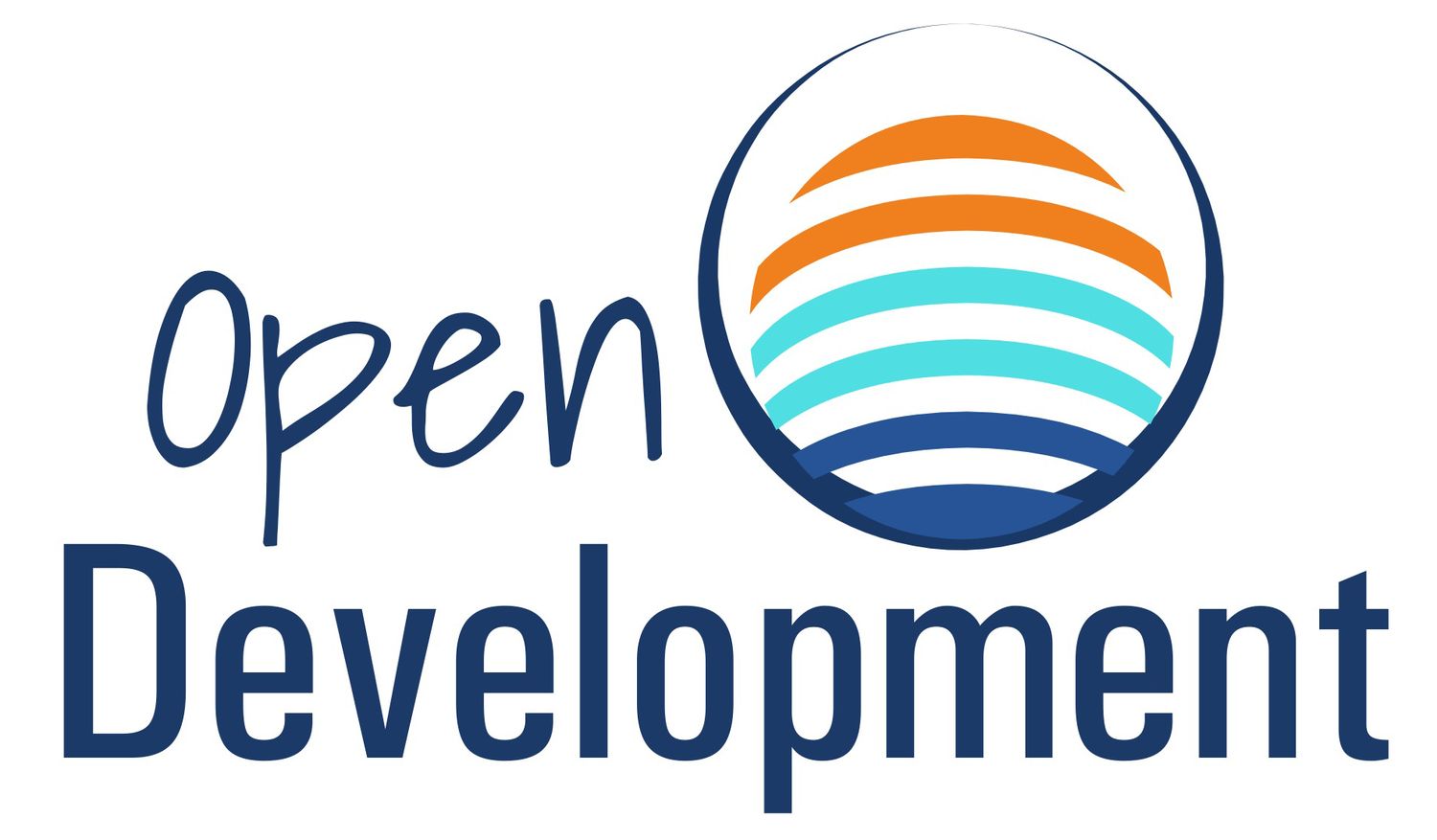Building a Sustainable Social Sector Ecosystem
Open Development CEO Sarah Scheening (left) and Open Development Advisor Ramesh Adhikari (far left) meeting with the USAID Local Works Support Project led by local NGO Scott Wilson Nepal. (Photo credit: Scott Wilson Nepal)
Sarah Scheening, CEO, Open Development
Yemelaknesh Wolde, Health Financing Advisor, Open Development
Monaemul Islam Sizear, Technical Advisor (Bangladesh), Open Development
Amanda Schulhofer, Senior Analyst (Philippines), Open Development
Elhadji Amadou Mbow-Baye, Senior Advisor (Senegal), Open Development
In the health sector, nongovernmental organizations (NGOs) play a critical role in delivering services to hard-to-reach communities. They also espouse person-centered approaches that provide support and integrated care close to where people live and work. Many governments have a long history of working with NGOs to provide these services and address other social sector issues.
To ensure NGOs can contribute to addressing major social challenges, countries must invest in their “social sector infrastructure”– a term coined by the Urban Institute to describe the ecosystem of support that social sector organizations, groups, and individuals need to survive and thrive. This includes investments in four key areas: Sustainability, Learning, Relationships, and Influence.[1]
One of the key components of the social sector infrastructure is “sustainability” – creating access to the financial, human, and operational resources that make it possible for social sector entities to work toward their missions. Through its Localization Agenda, USAID is becoming a major funder of local social sector organizations globally whose mission is to address the health and social needs of impoverished and vulnerable communities.[2]
To sustain USAID’s investment in local organizations, governments around the world must play a substantial role in prioritizing and financing their country’s own social sector infrastructure, while encouraging investments from philanthropy, charitable giving, and social enterprise. For example, in the U.S., one third of revenue for not-for-profit organizations came from U.S. government entities through formal contract opportunities and grants.[3]
That is why Open Development, with support from USAID, provides technical assistance to governments in sub-Saharan Africa and Asia to develop and finance their own social sector infrastructures. We are advising governments on how they can pursue their development goals by providing reliable financing to domestic NGOs through efficient and effective government contract and granting opportunities. This will help countries build and sustain a network of purpose-driven organizations that can bring publicly supported services close to where people live and work.
In Bangladesh, through the USAID HS4TB Project, we are part of the team, led by Management Sciences for Health, that is advising the Government of Bangladesh and the Ministry of Health and Family Welfare to implement a roadmap for domestically-funded contracting with NGOs. NGOs play a critical role in bringing health services closer to communities and households in Bangladesh. Yet, the assessment we conducted revealed the significant regulatory, policy, and capacity challenges that stifled the engagement of purpose-driven organizations through the public procurement system. In response, we have been supporting the Government of Bangladesh to revise its public procurement act and rules to allow for NGO contracting in the health sector. Later this year, the Ministry of Health and Family Welfare will award its first contract to an NGO to support tuberculosis (TB) diagnosis in children, using its own procurement system and resources, with the hope that this will be the first of many of these types of procurement opportunities.
Similarly, in the Philippines, through the USAID TIFA Project, we are part of the team, led by JSI, that is providing direct financing to local governments contracting with local NGOs to provide TB diagnostic services in geographically isolated and disadvantaged communities. Through TIFA funding, city and provincial health offices are providing contracts to NGOs to bring TB diagnostic services directly to communities and link presumptive TB patients to follow-up care. Our role is to support local governments to learn from these contracting experiences and identify best practices and effective strategies to navigate the public procurement process for health services. If successful, the local government health offices will advocate to sustain these kinds of opportunities for NGO engagement through domestic financing and procurement contracts.
In Senegal, through the USAID Urban Health Project, Open Development is supporting PATH to provide innovative grants to NGOs and associations that can provide health services to vulnerable women and children beyond public health facilities in three districts in Dakar. We support these NGOs and associations throughout the process, from co-creation to implementation, and provide them with capacity support in the form of learning, networking, and communication. If these grants are successful, we will advise the district governments on how to sustain these types of nongovernmental partners through their own planning, budgeting, and procurement processes.
In Nepal, through the USAID Localization Support Activity, Open Development is part of the EnCompass-led consortium that will strengthen the capacity of local organizations and governments to receive direct USAID funding.
Across these programs, Open Development is contributing to efforts to not only bring critical health and social services closer to communities but also to strengthen and sustain the social sector infrastructure in countries by:
Advising governments on the “what, when, where, and how” of local NGO support for public health and social sector objectives;
Supporting countries at all levels, including at the subnational level, to assess the policy, regulatory, and operational reforms needed to successfully contract with and provide grants to NGOs;
Supporting the social sector to advocate for domestic financing for contract and grant opportunities, thus fostering long-term financing for local organizations with a social mission;
Advising development assistance partners to advance the social sector infrastructure through direct financing to governments (e.g., through government-to-government support) in ways that fully utilize government systems and incentivize domestic co-financing to build governmental and nongovernmental capacity to partner.
Through our work, Open Development is committed to supporting local governments to sustain and cultivate their social sector infrastructure, increase equitable access to health services through nongovernmental partners, and fully benefit from USAID’s Localization Agenda.
[1] https://www.urban.org/research/publication/social-sector-infrastructure-definition
[2] https://www.usaid.gov/sites/default/files/2023-06/FY%202022%20Localization%20Progress%20Report-June-12-23_vFINAL_1.pdf
[3] https://www.urban.org/sites/default/files/publication/23671/412832-Federal-Government-Contracts-and-Grants-for-Nonprofits.PDF

